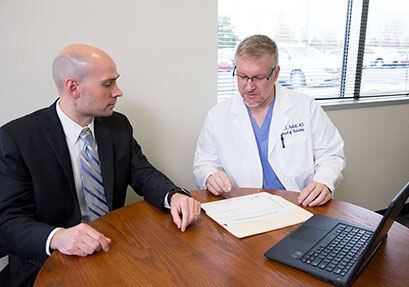Cost Drivers for Clinical Trials
Clinical Trials for Medical Device Innovators
 Cost drivers for clinical trials- the fourth, in a blog series about clinical trials for medical device innovators. Read part I: Designing Clinical Trials, part II: Regulatory Considerations for Clinical Studies, and Part III: Managing Clinical Trials, here.
Cost drivers for clinical trials- the fourth, in a blog series about clinical trials for medical device innovators. Read part I: Designing Clinical Trials, part II: Regulatory Considerations for Clinical Studies, and Part III: Managing Clinical Trials, here.
There is no denying that clinical trials are expensive propositions. There is little economy of scale; by and large, big pivotal trials cost proportionally more than small studies. The best thing one can do is design the study well to collect only the most relevant data, size it properly based on solid statistical grounds, select investigative sites judiciously to provide sufficient numbers of subjects, and manage the trial efficiently. These actions will not make a study inexpensive, but emphasis on consistency and paying strict attention to all the details will help minimize the cost. The cost drivers for clinical studies are numerous, vary between studies, and are certainly subject to change as time goes by. Rather than attempt to attach a current monetary value to each cost driver, it may be as valuable to provide a list of these drivers so that you, as the study sponsor, understand what estimates you will need to price the study. The following is a list of items that must be considered when estimating the cost of a clinical trial:
- Starting up one investigative site:
- Contract costs
- IRB review (at each site or single central IRB?)
- Site screening visit (if necessary)
- Site initiation visit
- Initial device inventory
- Data management:
- Creation of a database
- Creation of a data collection system [typically electronic data collection (EDC)]
- Training site personnel on data entry
- Data collection:
- Reimbursements to site for completed data forms (typically at patient screening, procedure, and follow-up; priced per form completed)
- Reimbursement to site for tests and procedures that are not “standard of care” for the disease entity or procedure compensation to patients for travel and parking if nontrivial
- Data review and queries
- Project management:
- Monitoring visits (interim visits [how many?], final closeout visit)
- Establish or contract with a Clinical Events Committee (if needed)
- How many meetings over course of study?
- Establish or contract with a Data Safety Monitoring Board (if needed)
- How many meetings over course of study?
- Contract with core laboratories, for example, imaging (if needed)
- Final data analysis (statistician) and preparation of the manuscript
Regulatory costs for conducting clinical studies are minimal. You may have the cost of a meeting with FDA if you decide to have a pre-IDE meeting; however, these meetings can be held by teleconference. There is no fee to submit the IDE application itself. The primary regulatory costs come when applying for market approval. If your device requires a 510(k) application, the fee is $4690 (USD 2017). For a premarket approval application (PMA) for a Class III device, the fee is $234,495 (USD 2017). If you qualify as a small business, the 2017 application fees for a 510(k) and PMA are $2345 and $58,624, respectively.
Small businesses with an approved small business designation are eligible to have the fee waived on their first PMA.
Clinical trials are exciting, exhausting, and expensive. As an innovator of a new medical device, you need to decide what role you want to play in the life cycle of your device (concept to commercialization). Do you want to give it up for adoption (sell the IP early), or do you want to try to raise it to adulthood (obtain full regulatory approval to market), or do you want to participate in something in between? That answer will help you decide if you need to conduct a clinical study on your device and if so, the type of study. Do not go into a clinical study lightly! You have an obligation to your subjects/patients to run the best possible study. They deserve to have their contribution count. Regulatory authorities demand accurate, truthful, and complete data. You must demand the same. After all, it is your reputation and that of your device on the line.
For more information, please contact us today 855.463.1633 | askmed@medinstitute.com |medinstitute.com.
Continue to follow our blog to view the upcoming Part V: Important Points.
Get email about news, services, and events from MED Institute.
OUR COMMITMENT
We are committed to consistently performing services with high quality, that deliver exceptional results, and add value to the client’s business.
For client surveys sent in 2024, we received ratings of 4.98/5 points (13).
